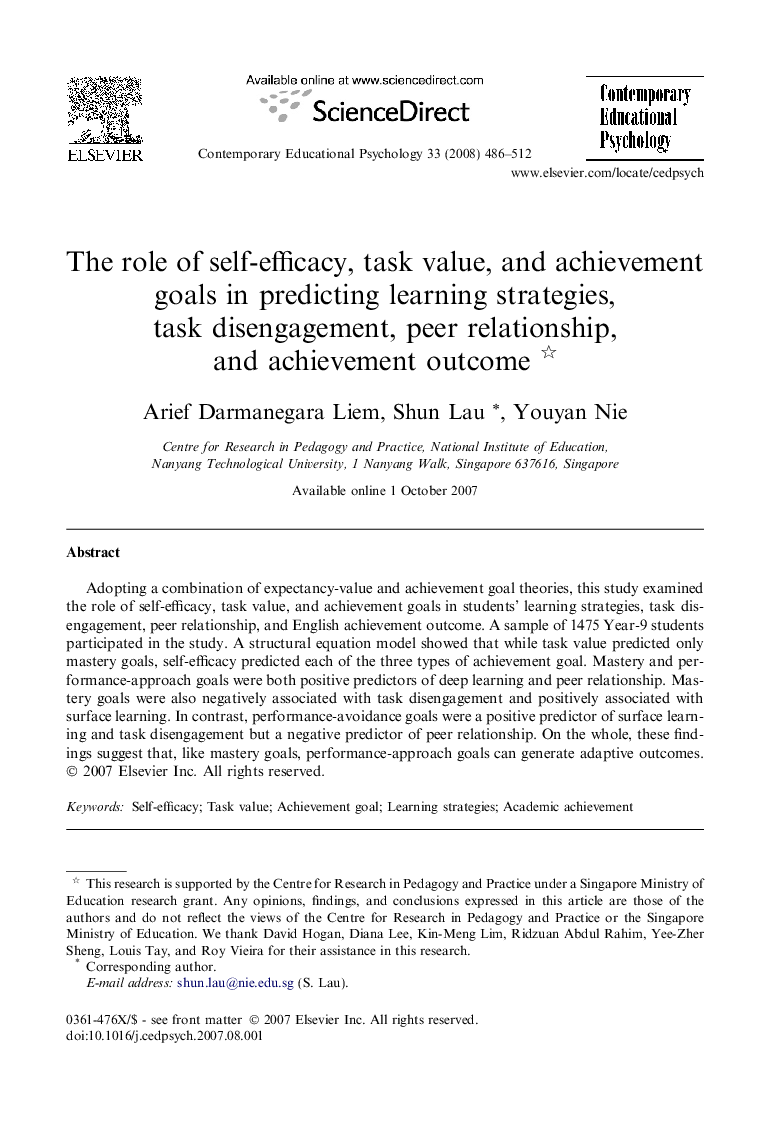| Article ID | Journal | Published Year | Pages | File Type |
|---|---|---|---|---|
| 352817 | Contemporary Educational Psychology | 2008 | 27 Pages |
Adopting a combination of expectancy-value and achievement goal theories, this study examined the role of self-efficacy, task value, and achievement goals in students’ learning strategies, task disengagement, peer relationship, and English achievement outcome. A sample of 1475 Year-9 students participated in the study. A structural equation model showed that while task value predicted only mastery goals, self-efficacy predicted each of the three types of achievement goal. Mastery and performance-approach goals were both positive predictors of deep learning and peer relationship. Mastery goals were also negatively associated with task disengagement and positively associated with surface learning. In contrast, performance-avoidance goals were a positive predictor of surface learning and task disengagement but a negative predictor of peer relationship. On the whole, these findings suggest that, like mastery goals, performance-approach goals can generate adaptive outcomes.
